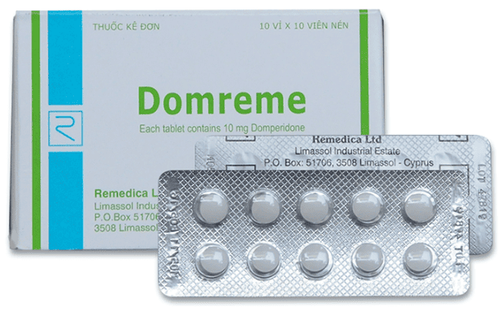This is an automatically translated article.
Every symptom, no matter how small, can be a sign of cancer. The more sensitive, the sooner you go to the doctor, the higher the chance of detecting cancer at an early stage.
1. Signs of cancer in both men and women
Anorexia : Loss of appetite can be a sign of cancer due to metabolic changes caused by cancer cells. Besides, the fact that the stomach is compressed by gastric cancer, pancreatic cancer, colon cancer and ovarian cancer can also cause anorexia. Fever that doesn't go away: A high fever is often a sign of an infection. However, in some cancers such as lymphoma, leukemia, liver cancer, and kidney cancer, febrile presentation may occur. Fevers in cancer often go up and down throughout the day, sometimes peaking at the same time. Seek medical attention right away if you have a high fever above 38 degrees Celsius that lasts for more than a few days. Nodules in the neck: A lump can be a sign of an infection, but is also an early warning of oral cavity cancer, oropharyngeal cancer, thyroid cancer, and cancer of the larynx. Cancerous tumors are usually painless. If you have a lump in your neck that doesn't go away or grow, see your doctor. Blood in the stool: In addition to cancer, ulcers, hemorrhoids, and infections can also cause blood in the stool. Blood in the stool only indicates damage to your esophagus, stomach or intestines. Blood in bright red stools may be in the rectum or the last part of the intestine. Darker colors may indicate bleeding from the stomach. To find the cause of the bleeding, your doctor may order an endoscopy and other tests. Blood in the urine: Blood in the urine is a warning sign of urinary tract diseases, including kidney cancer and bladder cancer. However, it can also be a sign of infection, kidney stones, or kidney disease other than cancer. Cough that doesn't go away: A cough that doesn't go away can be a sign of lung cancer, especially when you have additional symptoms like chest pain, weight loss, hoarseness, fatigue, and shortness of breath. Persistent fatigue: Persistent fatigue is one of the most common cancer symptoms. If you have persistent fatigue that doesn't go away despite changes in activity and sleep levels, see your doctor for a checkup.
Night sweats: In middle-aged women, night sweats can be a symptom of menopause, but it is also a symptom of cancer or infection. Skin changes: A telltale sign of skin cancer is a change in your skin or a sore that won't heal. See a dermatologist to find out the cause right away if the skin has large or thickened moles, changes in color, strange contours, sizes larger than a pencil eraser, peeling crust. Swollen lymph nodes: A lump in the neck is most likely due to strep throat or another infection. In addition, cancers such as lymphoma, leukemia, or breast cancer can also cause lymph nodes to swell. If the swelling doesn't go away in a week or so, check with your doctor. Difficulty swallowing: Difficulty swallowing is a common symptom of heartburn. Although rare, it can also be a sign of esophageal cancer. If difficulty swallowing doesn't improve or gets worse, see your doctor. Lose Weight Without Trying: Up to 2 out of 5 people diagnosed with cancer have lost weight for no apparent reason.

2. Signs of cancer in men
Blood in urine or semen : Pink, brown, or red blood in urine or semen is usually nothing to worry about. However, they can also be a sign of infection, kidney stones, trauma, even bladder or prostate cancer. See your doctor for a urinalysis and some other tests to find out what's causing the bleeding. Tumor in the testicle: Testicular lump that is painless to the touch is a warning sign of testicular cancer. However, tumors can also be caused by trauma, fluid accumulation, or hernia. Pain during ejaculation or urination: If it hurts when urinating or having an orgasm, you most likely have a prostate or urethral infection, even prostate cancer. If the pain doesn't go away, check with your doctor.
Trắc nghiệm: Thử hiểu biết của bạn về bệnh ung thư
Ung thư là nguyên nhân gây tử vong hàng thứ 2 trên thế giới. Thử sức cùng bài trắc nghiệm sau đây sẽ giúp bạn có thêm kiến thức về yếu tố nguy cơ cũng như cách phòng ngừa bệnh ung thư.
Bài dịch từ: webmd.com
3. Signs of cancer in women
Tumors or changes in the breast : A lump or other change in the breast is a hallmark symptom of breast cancer, but most lumps are not cancerous but are usually fluid-filled cysts or masses you are benign. However, see your doctor as soon as you notice any changes in your breast such as redness or crusting, breast tenderness, nipple changes, lumps under your arms, or discharge from your nipples. Bleeding between periods or after menopause: When bleeding occurs after menopause or outside of a normal menstrual cycle, there is a chance of cervical cancer or endometrial cancer. You need to see a doctor right away to find out the cause of the abnormal bleeding. Depending on your health and the type of cancer, there will be different warning signs. Therefore, when the body shows the above signs or other abnormal symptoms, the patient should soon go to the medical center for early examination and screening for cancer.
Periodic health check-ups and early cancer screening are considered "golden keys" for early detection and effective prevention methods and treatment regimens for dangerous cancers. reduce the risk of death and reduce costs for patients. Currently, Vinmec has been a leading medical facility in the field of early detection of cancer, whereby the high-tech cancer screening package at Vinmec gives you the opportunity to screen and develop Timely detection of disease warning risks to optimize treatment efficiency and improve quality of life.
Please dial HOTLINE for more information or register for an appointment HERE. Download MyVinmec app to make appointments faster and to manage your bookings easily.
Reference source: webmd.com












